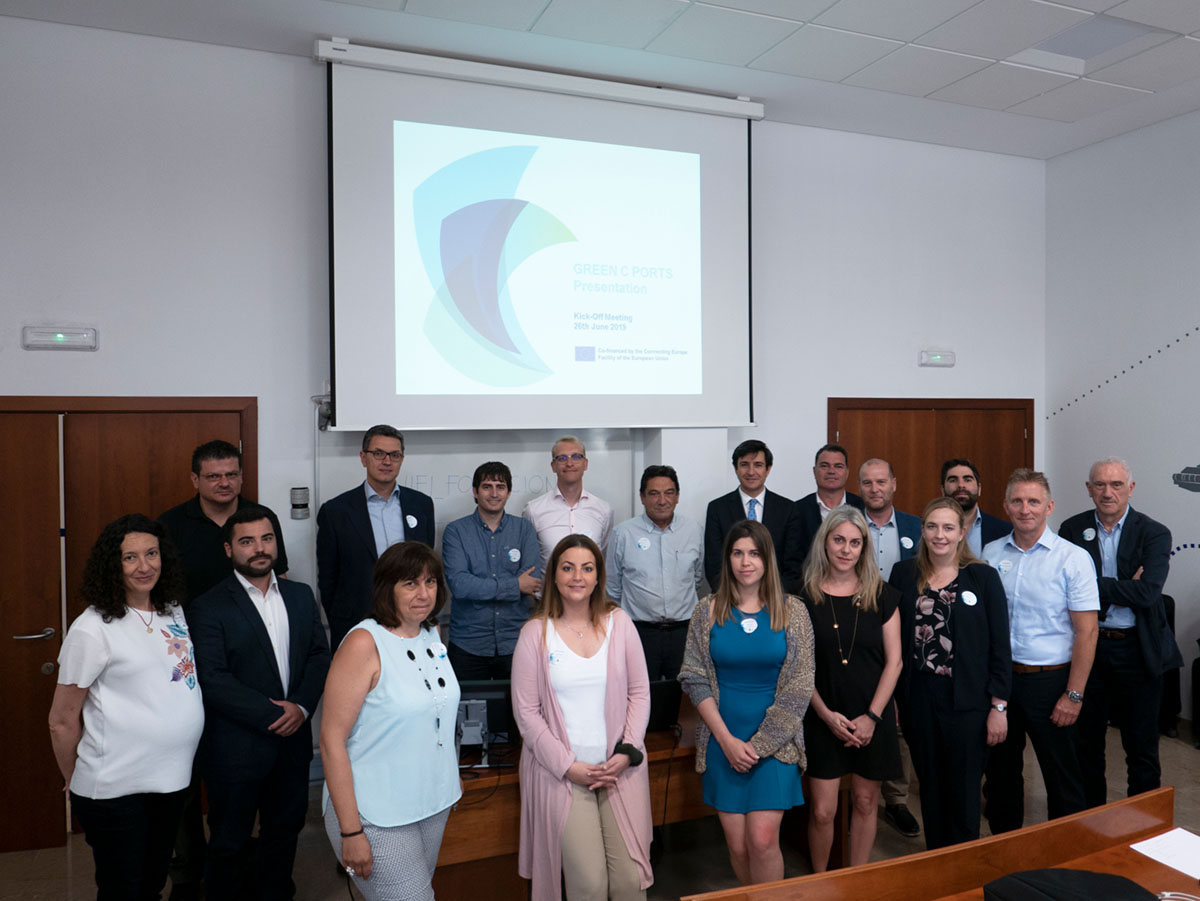Valencia – 10.07.19. In June 2019, the Green and Connected Ports (GREEN C PORTS) project was launched, led by the Valenciaport Foundation and funded by the European Commission’s Connecting Europe Facility (CEF) Program.
GREEN C PORTS has the overall objective of providing a set of digitization tools and technologies to support the environmental sustainability of ports and the performance of port operations on the TEN-T network.
This project will address six case studies consisting of prototypes and pilots that will be implemented in different European ports. These pilots will serve as a basis, in the area of port environmental sustainability, to test innovative technologies such as: IoT, big data or predictive analysis using artificial intelligence models.
The first case study, which is carried out in the port of Valencia, aims to combine different sources of information such as port’s gate systems and intelligent cameras in order to reduce the congestion of road traffic within the port area. In this sense, it is planned to carry out a series of prediction models that will determine the number of tucks entering and exiting the port for a given date and time. In this way, it will be possible to know with certain precision whether or not there will be congestion at a certain future date and time.
The second case study, aims to anticipate the problems of maritime access that the port of Venice has, due to certain adverse weather conditions such as tide, wind or fog. It is about making predictive models that can anticipate possible closing periods of this Italian port, so that arriving vessels and affected customers could be informed in advance to better plan their near future operations.
Moreover, business cases 3 and 4 aim to improve air quality and noise both in the ports of Piraeus and Valencia. To do so, a series of sensors, meteorological cabins, spectrographic cameras and other equipment will be deployed, in order to rapidly detect measurements above tolerance levels in order to inform port authorities so that they can make certain decisions to mitigate these challenges.
The fifth targeted case study is located in Germany, where it will be analyzed the negative impact that some adverse meteorological conditions (e.g. agitation of waves, currents and wind) have on the productivity of ship-to-shore cranes (STS) in the ports of Bremerhaven and Wilhelmshaven. Through a predictive model, different sources of information will be integrated in order to anticipate, up to 48 hours in advance, possible drops in the service level due to meteorological issues. In this sense, the management and communication of this information would allow the captains of the different vessels to adjust their navigation speed to avoid port calling in those days with adverse meteorology conditions.
Finally, the sixth and last but not least case study, aims to monitor emissions in real time along a complete multimodal transport chain on the routes that connect Barcelona, Valencia and Palma de Mallorca. This pilot will measure precisely the carbon footprint that a specific shipment has generated, so that the different shippers could have a transparent view of the carbon generated in their transport operations. This knowledge will trigger the usage of alternative logistic chains and paths with a lower environmental impact for their products.
Ultimately, this project will reduce the impact of port operations in cities, control emissions from ports and vessels, and will optimize the operations of cargo in the main European ports. In this sense, the project will promote ecological, viable, challenging and efficient maritime transport links, integrated throughout the transport chain, and its application will help to rebalance the EU transport system towards a more sustainable system.
Fuente: Fundación Valencia Port







